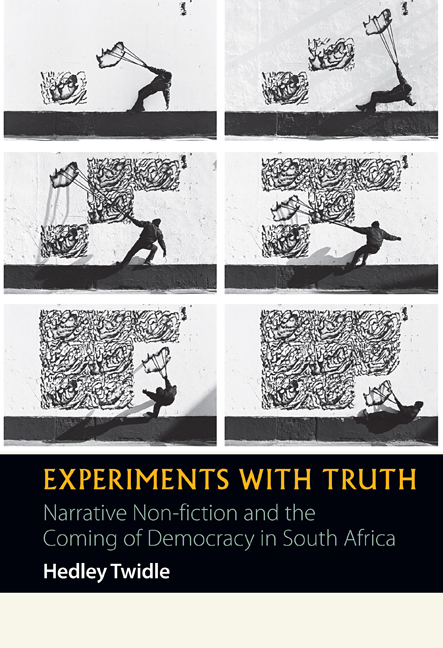Book contents
- Frontmatter
- Contents
- Preface: Encountering non-fiction
- 1 Introduction: Historical and theoretical approaches
- 2 Unusable pasts: The secret history of Demetrios Tsafendas: assassin, madman, messenger
- 3 Literatures of betrayal: Confession, collaboration and collapse in post-TRC narrative
- 4 In search of lost archives: Nostalgia, heterodoxy and the work of memory
- 5 A very strange relationship: Ambition, seduction and scandal in post-apartheid life writing
- 6 Some claim to intimacy: Political biography and the limits of the liberal imagination
- 7 In short, there are problems: Literary journalism in the postcolony
- 8 Unknowable communities: Necessary fictions and broken contracts in the heart of the country
- 9 A new more honest code: Memoirs of the ‘born frees’ and the futures of non-fiction
- 10 Afterword: The extracurriculum
- Bibliography
- Index
- Miscellaneous Endmatter
10 - Afterword: The extracurriculum
Published online by Cambridge University Press: 11 September 2020
- Frontmatter
- Contents
- Preface: Encountering non-fiction
- 1 Introduction: Historical and theoretical approaches
- 2 Unusable pasts: The secret history of Demetrios Tsafendas: assassin, madman, messenger
- 3 Literatures of betrayal: Confession, collaboration and collapse in post-TRC narrative
- 4 In search of lost archives: Nostalgia, heterodoxy and the work of memory
- 5 A very strange relationship: Ambition, seduction and scandal in post-apartheid life writing
- 6 Some claim to intimacy: Political biography and the limits of the liberal imagination
- 7 In short, there are problems: Literary journalism in the postcolony
- 8 Unknowable communities: Necessary fictions and broken contracts in the heart of the country
- 9 A new more honest code: Memoirs of the ‘born frees’ and the futures of non-fiction
- 10 Afterword: The extracurriculum
- Bibliography
- Index
- Miscellaneous Endmatter
Summary
In the opening lines of The Loss Library (2011), Ivan Vladislavić explains the concept underlying this short work: ‘These notes deal with unsettled accounts. They concern stories I imagined but could not write, or started to write but could not finish. Most were drafted to some point before being put aside, but a few went no further than a line or two in a notebook’ (7).
‘Mouse Drawing’, for example, tells of a writing residency in Stuttgart where the author wakes up to find a mysterious sketch on his minimalist white table: ‘Some of the lines were faint and curly, others were emphatic, shooting off at angles like fragments of a graph’ (73). When he opens his laptop, the mystery dissolves in an instant: there is fragment of pencil lead lodged in the underside of the mouse; and so now he reconstructs how the previous night's work has resulted in this unforeseen graphic:
How many movements in three or four hours of work? I imagined my hand in the shadows, a manuscript beside the computer on a lily pad of light, the cursor wavering across the screen, blocking, dragging, deleting, inserting, cutting, pasting. Clicking on icons, dropping down menus. Do, undo, redo. In the chance drawing on the table top, every single thought and final action had been translated into a line. (75)
The fiction that (almost) resulted was to have been a Borges-like tale in which a writer begins to discern the secrets of the universe in such diagrams, and so sets himself to work in the dark to generate more: ‘His every creative act now excretes a secondary product’ (75). The image is true for The Loss Library as a whole. We are reading a non-fictional by-product that comes to stand in place of, but also encompasses and archives, all the unrealised ideas it describes. The draft of the original ‘Mouse Drawing’ vanishes in transit back to Johannesburg, along with all the other material from a year's work. In the decade since, Vladislavić writes, he has forgotten exactly what else was lost. The books that mattered were replaced, ‘and I soon learned to live without the half-formed fictions and copies of correspondence. But “Mouse Drawing” will not rest. I hear it rustling now in the waste-paper basket. It wants to begin again’ (76).
- Type
- Chapter
- Information
- Experiments with TruthNarrative Non-fiction and the Coming of Democracy in South Africa, pp. 213 - 224Publisher: Boydell & BrewerPrint publication year: 2019



